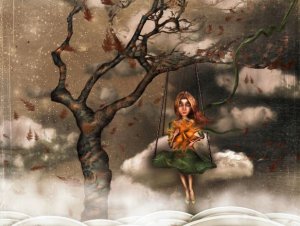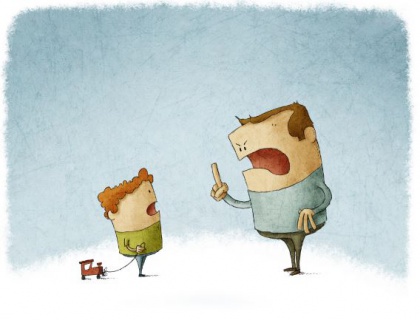5 Childhood Wounds that Could Still Be Affecting You

Problems experienced in childhood can impact our quality of life as adults. What’s more, they can significantly influence how we’ll interact with our own children and how we will face adversity.
In particular, these 5 emotional wounds or painful experiences from childhood have the power to shape our personality, according to author Lise Bourbeau.
1- Abandonment
Loneliness is the worst enemy of anyone who experienced abandonment as a child. People who fear loneliness are more likely to abandon their partners and their projects early on, for fear of being the one who is abandoned. People with fears of abandonment might thing things like “I’ll leave you before you can leave me”, “nobody supports me, I am not prepared to support anyone else”, “if you leave, you won’t come back…”
People who have experienced abandonment in their childhood will have to work on their fear of loneliness, their fear of being rejected, and their invisible barriers against physical contact.
Wounds caused by abandonment are not easy to fix. But once the healing process begins, people with these fears often experience drastic improvement: their fear of solitude disappears and is replaced by positive and hopeful inner dialogue.
2- Rejection
This is a very deep wound and can extend to feelings of rejection from within; that is, the sense of rejection taints our thoughts and feelings.
Many factors can influence the emergence of this fear, like rejection from parents, family, or peers. It generates more thoughts of rejection, of being undesireable, of being worthless.
Anyone who suffers from this painful experience feels undeserving of affection and understanding, and they isolate themselves inside their empty interior, afraid of being rejected. Those who have been rejected as children tend to become elusive adults. Therefore, they have to work through their internalized fears and the situations that give them anxiety.
If this is the case for you, steps toward healing involve learning to take risks and make decisions for yourself. It will bother you less and less every time someone drifts away, and you won’t take it personally if someone forgets about you for a moment.
3- Humiliation
People who were continuously humiliated as children are made to think that other people disapprove of and criticize us. Parents foster this fear in their children by telling them they are “bad” or that they are too clumsy or heavy, as well as when we air their problems in front of other people. All these things destroy a child’s self-esteem.
This fear often leads to the development of a dependent personality. As adults, those who were humiliated as children might also be tyrannous and selfish as a defense mechanism, and even tend to humiliate others as a protective shield.
Anyone who suffers this type of experience must work on their independence, freedom, priorities, and how to better understand their needs and fears.

4- Betrayal
When a child is betrayed, mainly by a parent who has not fulfilled a promise, this creates a fear of trusting others. This tendency to mistrust can transform into envy and other negative feelings, as one can feel unworthy of what was promised and of what others have.
Those who were betrayed often as children may grow up to be controlling people who need everything to be exactly the way they want it. They likely feel the need to exercise a certain amount of control over others, which they frequently justify as being a part of their strong character.
These people tend to confirm their mistakes through their behavior. They must work on patience, tolerance, and knowledge, and they must learn how to be alone and how to delegate responsibilities.
5- Injustice
This fear originates in environments where the principal caregivers are cold and authoritarian. During childhood, excessive demands that push one’s limits can produce feelings of ineffectiveness and uselessness, which perpetuate into adulthood.
A direct behavioral consequence of injustice is rigidness, and these people generally try to be very important and acquire a lot of power. Also, a fanaticism for order and perfection often develops, as well as the inability to make decisions with certainty.
People who suffered injustices in childhood must work on lowering their levels of mistrust and mental rigidness in order to be more flexible and allow themselves to trust others.
Knowing and recognizing these five wounds of the soul that can affect our wellbeing, health, and capacity to develop as people, allows us to begin to heal them.
Images courtesy of natalia_maroz and jrcasas
Source of the idea: Bourbeau, L. (2002) Heal Your Wounds and Find Your True Self. Lotus Press.
This text is provided for informational purposes only and does not replace consultation with a professional. If in doubt, consult your specialist.








